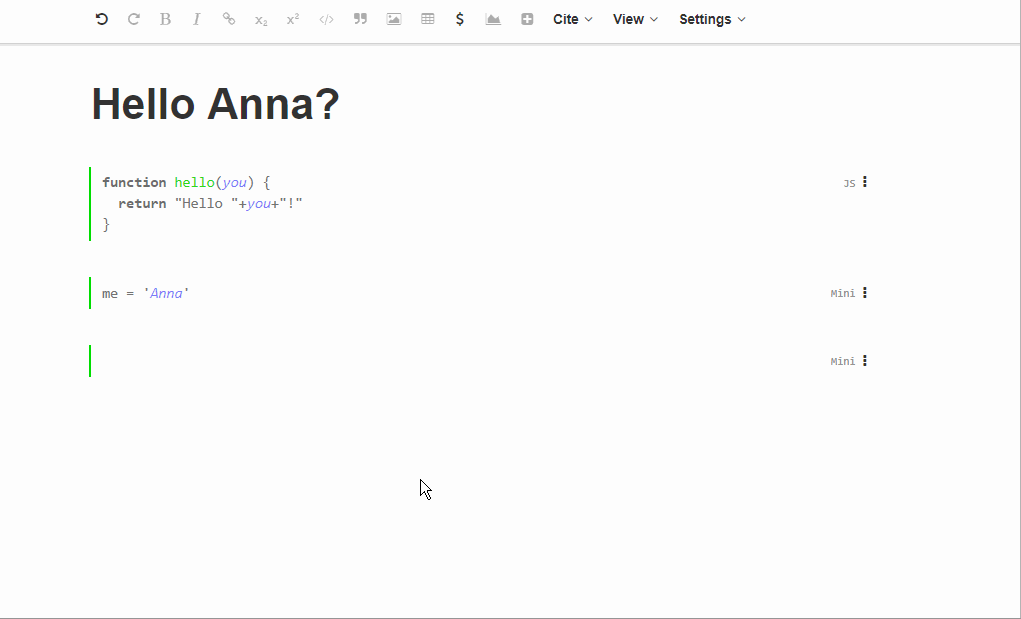Nokome Bentley and Oliver Buchtala have investigated options to achieve this and found a very simple and generic solution. Stencila Cells can return a special value of type function. This does not differ very much from other return values, such as a number.
Returned functions are however special, they are passed around just as the information necessary to ask the Stencila Host to actually run the function.
This approach introduces only a rather tiny concept, but has a huge impact: for example a cell executed in R can register a function, which can be executed in every other context, e.g. in Javascript.
Reactive evaluation, i.e. automatic updates, are coming for free, as functions are just treated as regular values.
A function could be defined in Javascript
function hello(you) {
return `Hello ${you}`!
}
When executed, this cell would return a function that is then will be known to Stencila by the name hello.
Any other cell can call it, for example a cell written in Mini:
me = 'Anna'
hello(me)
The Stencila Engine passes the information that me="Anna" and that hello is a function registered with the Stencila Host.
When it comes to evaluation of the second cell, it will ask the Host to evaluate hello with the value Anna.
This is how it would look like: (find the gif below)

This is really cool and would love to have an example with it (as you mentioned on Twitter). Awesome!